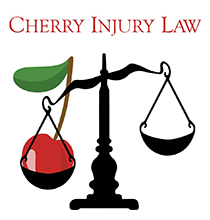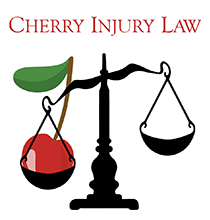Philadelphia PA Personal Injury Lawyers
Lawyers Looking to Reform Rule for Arbitration Appeals
The Legal Intelligencer
By Amaris Elliott-Engel
March 9, 2010
It’s a procedural rule designed to benefit both plaintiffs and defendants in litigating appeals from arbitrations. But in nearly seven years since Pennsylvania Rule of Civil Procedure 1311.1 was created, questions about its implementation have emerged as the rule is put into effect in the real world.
The questions center around key issues where the rule is either silent or vague.
Under Pennsylvania Rule of Civil Procedure 1311.1, plaintiffs may elect to cap their damages at $25,000 in the trials of appeals from arbitrations. Plaintiffs also waive the right to call expert witnesses. Instead, the witnesses’ testimony is given to juries through their reports on the plaintiffs’ damages and on the causal relationship between the plaintiffs’ alleged injuries to the alleged torts committed by defendants.
Among other benefits, the rule lets plaintiffs avoid eating up the small amount of recovery possible in low-damage personal injury cases by not having to pay for live physician expert testimony, according to interviews.
And defendants know that when plaintiffs elect to cap their damages at $25,000 their exposure won’t be greater than that amount.
In the last several months, however, a retired Superior Court judge and a committee of the Philadelphia Bar Association have contemplated changes to the rule. There appear to be a number of concerns about the rule’s operation, from when plaintiffs can withdraw a stipulation to cap damages, to whether plaintiffs are entitled to redirect examination of witnesses whose testimony they’ve waived, to how much medical experts can charge to testify.
Alan Schnoll, a Philadelphia plaintiffs counsel who is playing a key role in drafting the committee’s proposed Rule 1311.1 revisions, said the rule is good for both the plaintiffs and defense bar, but revisions would make it function better.
In the last two years, Richard B. Klein, recently retired from the Superior Court, was the author of a majority opinion, Dolan v. Fissell, and a concurring opinion in another case, Kopytin v. Aschinger, addressing issues of first impression that have arisen regarding Rule 1311.1. Senior Judge John T.J. Kelly Jr. wrote the majority opinion in Kopytin.
Also, Klein spoke to the Philadelphia Bar Association last summer about areas in which the rule could be reformed.
Meanwhile, the association’s Compulsory Arbitration Committee has been drafting proposed changes to the rule.
Joshua D. Baer, a defense lawyer with Margolis Edelstein and co-chair of the Philadelphia Bar Association’s compulsory arbitration committee, said the committee is working to fashion language on which both its defense and plaintiffs attorney members can reach agreement. When the committee finalizes its draft language, the language will then be forwarded to the bar association’s state civil litigation section for review, committee members said.
The rule has already been revised once to raise the damages cap from $15,000 to $25,000.
Huntingdon County Common Pleas Judge Stewart L. Kurtz, who co-chairs of the Supreme Court’s Civil Procedural Rules Committee, said that revising Rule 1311.1 is not currently on the committee’s agenda. But if the Philadelphia Bar Association wants the committee to review the rule, Kurtz said, he is certain the committee would take a look at their suggested changes once those suggestions are forwarded.
Klein said in an interview that the rule is silent on when a plaintiff can withdraw his or her stipulation to cap damages during an appeal from the award of arbitrators.
In the Dolan case, Klein wrote for the majority that it is up to a trial judge’s discretion whether to permit the withdrawal of a stipulation under Rule 1311.1. In the Dolan case, two Chester County plaintiffs were allowed to withdraw their damages stipulation after their counsel claimed he did not realize that $8,200 in property damage would be part of the $25,000 cap, Klein said.
Schnoll, of the Law Office of Alan Schnoll, suggested that the stipulations can be withdrawn by agreement of both parties, or, when facing defense opposition, the plaintiffs can make a motion to withdraw the stipulations and judges can only rule against the plaintiffs’ motion to withdraw if the defendants demonstrate prejudice.
Klein said he is concerned about not letting plaintiffs withdraw damages stipulations undertaken when their injuries appeared less serious and their injuries turn out to be much worse.
Baer said both plaintiffs and defendants face “unique challenges in implementing the rule in the courtroom setting, particularly about when stipulations can be withdrawn.”
Baer said it is not clear if withdrawing a stipulation can amount to prejudice or not.
The rule also doesn’t address if plaintiffs are still bound by their damages stipulations if defendants subpoena plaintiffs’ expert witnesses like doctors whose testimony the plaintiffs have waived by opting for the damages cap, Klein said.
Because the rule allows defendants to subpoena witnesses whose testimony has been waived by plaintiffs, the rule should spell out whether plaintiffs are allowed redirect on plaintiffs witnesses called live by defendants for cross-examination, said Schnoll, who co-chairs compulsory arbitration committee until December.
And once defendants have subpoenaed plaintiffs’ experts, the rule does not provide guidance on whether plaintiffs can withdraw their stipulations to cap their damages and take over for paying for the doctors from the defense, Schnoll said.
The rule also lacks controls on how much medical experts can charge to testify in Rule 1311.1 cases, Klein said.
The rule also doesn’t contemplate how experts’ reports should be presented in the courtroom, including whether or not a glossary of terms can be provided to put experts’ reports into lay person terms, Baer said.
Ronald A. Kovler, a plaintiffs attorney with Kovler & Rush in Philadelphia and who has been active in the bar association’s work on Rule 1311.1, said the rule should clarify if experts’ reports should be read to juries or submitted to the juries to read on their own. Kovler also said the rule should address providing definitions of jargon in experts’ reports.
“Absent a definition in the report, then it can be completely speculative as to what a jury is going to do with that information,” Kovler said.
Sean Connolly, a spokesman for the Pennsylvania Defense Institute, said the defense lawyer group will be reviewing Rule 1311.1 issues with its members.
Klein said it would be better for the Civil Procedural Rules Committee to revise the rule rather than let questions about the rule be answered in a piecemeal fashion as cases are appealed to the state Superior Court.
“It’s better to do it with fuller input than you get with two lawyers and three judges,” Klein said.
Because of the fact that the cases governed by Rule 1311.1 are cases involving a small amount of alleged damages and a small amount of recovery, it’s often too expensive to appeal Rule 1311.1 cases in which trial judges have made mistakes, Klein said.
Settling issues with Rule 1311.1 by revising the rule is even more important because many cases may not be appealed from the trial level, he said.
Contact Us Today! WE CAN HELP YOU!
If you have been seriously injured in the state of Pennsylvania by the negligence of another and if you have questions or concerns about your legal rights, please don’t hesitate to call. Our Pennsylvania injury attorneys are available 24 hours a day to speak with you, and we welcome all calls at no charge. Contact us today at 610-565-0300.








 Cherry Injury Law RSS Feed
Cherry Injury Law RSS Feed



